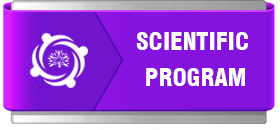
Biography
Biography: Madelene Sta. Maria
Abstract
The research systematically reviewed the academic literature on well-being and resilience in the life periods of adolescence, adulthood, and later adulthood. The approach outlined by Whittemore and Knafl (2005) was used to guide the narrative review procedure. The appraisal process included a determination of theories, definitions, and contextual and psychological variables related to well-being and resilience. The search and appraisal yielded ca. 42 articles on adolescence, adulthood and later adulthood from the period of 2014-2017. The systematic review revealed differences in developmental contexts in which the positive psychological constructs gain significance in these life periods. A compensatory model of resilience is often used in studying resilience in adolescence, i.e., positive family relationships and community resources provide the young person with emotional support and a sense of safety to reduce the impact of adverse conditions. Resilience in adulthood is likewise marked by nurturing and supportive relationships. Resilience in later adulthood is evident when the individual exhibits the ability to access social networks to maintain everyday activities. Resilience is studied as an antecedent to wellbeing. However, there are differences in the means by which individuals within each period gain wellbeing. Adolescent wellbeing emerges from the individual’s interaction and engagement in multiple contexts of development. It is within these nurturing contexts where the young person develops assets, such as self-regulation and identity. While wellbeing in adulthood and later adulthood is also derived from positive social relationships, studies show that adult wellbeing is a consequence of abilities to develop personal strengths and resources. Wellbeing in later adulthood is gained through an individual’s capacity for social and physical mobility. In conclusion, processes in which the positive psychological constructs of wellbeing and resilience develop are closely associated with the outcome and tasks persons have to accomplish to optimally develop in a given life period.

